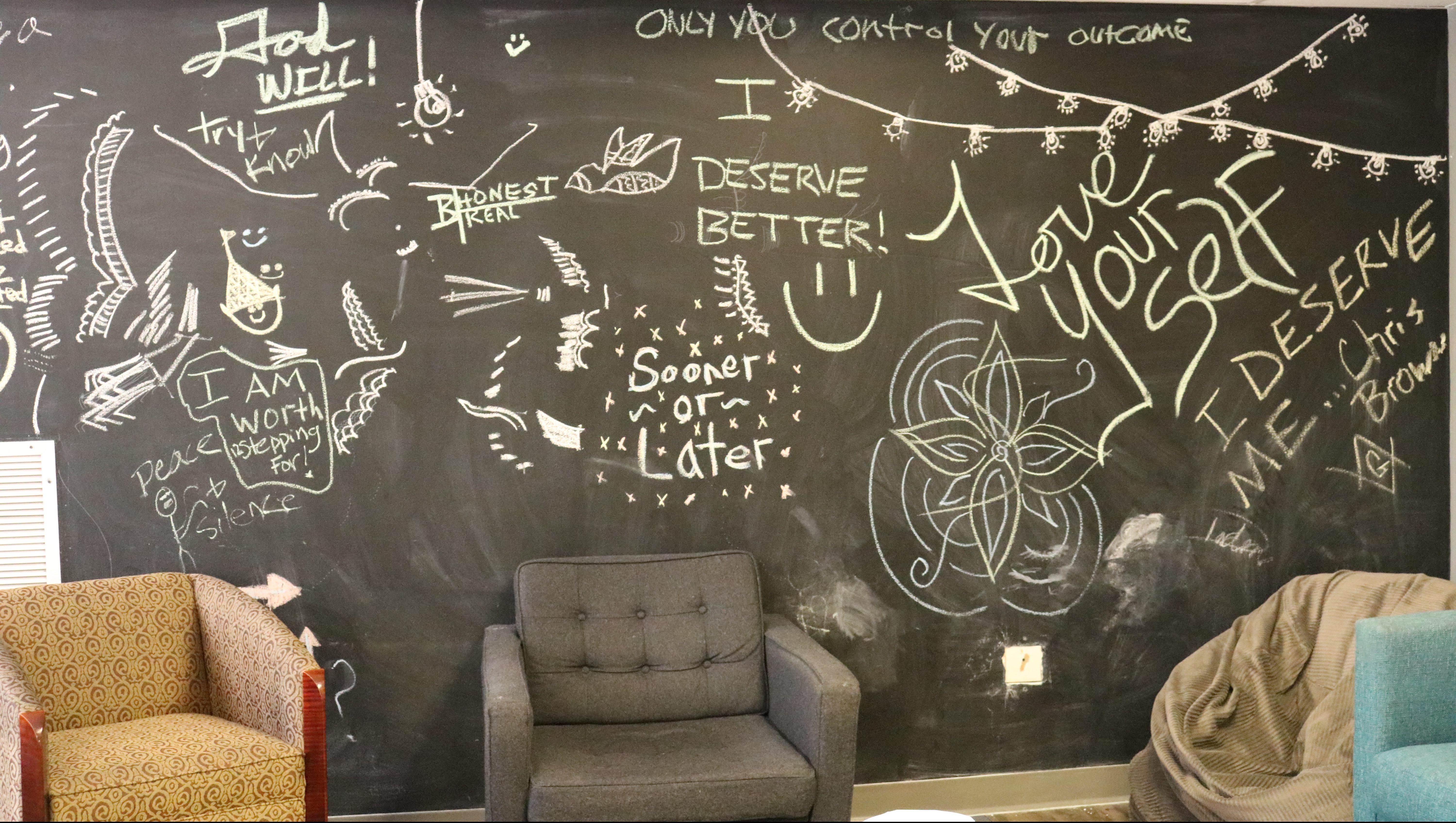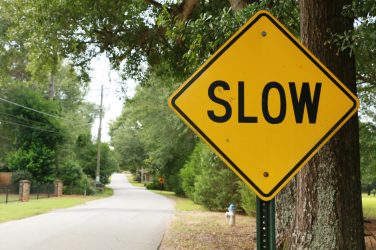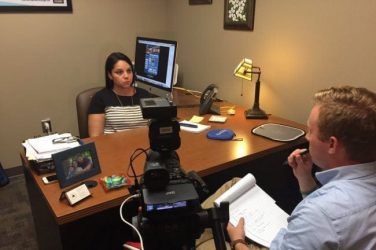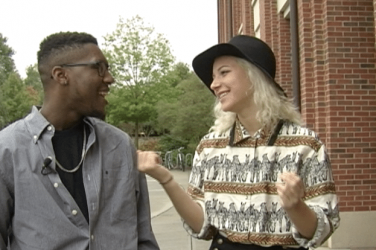“What’s right with you?”
That’s the first thing people hear when they go to an addiction recovery workshop hosted by the nonprofit People Living in Recovery.
Tucked inside the second floor of a Christian ministry in Athens, PLR provides a safe, positive space for people on the journey to recovery.
Why It’s Newsworthy: Georgia’s rate of drug overdose deaths increased 10.5 percent from 2016-2017, according to the Centers for Disease Control. PLR serves the Athens-Clarke County recovery community and aims to tackle the social stigma around addiction.Labeling Language
Wanda Anglin’s recovery journey almost slammed to a stop when a judge told her that she was nothing but an addict, and she’ll always be an addict.
It about devastated me. I thought, [the judge] doesn’t even know me. He doesn’t know where I’m going in my life today,” says Anglin. “I was in recovery, trying to do better, and he still said that…I mean, that’s a hard blow.”
Because of language’s stigmatizing power, advocates in the recovery community emphasize language that puts people first, according to a study in the Journal of Substance Abuse Treatment.
The people-first language promotes the human instead of highlighting the behaviors or conditions of the person.
As a recovery coach for PLR, Wanda recognizes the impact of a few simple words.
“Calling myself an addict doesn’t sound good or feel good. But when I walk into PLR and address myself as a person in long term recovery, [that feeling] just changes,” says Anglin. “It changes how people look at me and how I feel about myself because it doesn’t label me.”
Stigma in the System
Shane Sims, PLR program director, experienced stigma’s role in the criminal justice system while serving a 20-year prison sentence.
In 1995, the Department of Criminal Justice commissioner deemed that criminal offenders were not worth the bullet it would take to kill them,” says Sims.
Sims’ time in the criminal justice system occurred during the first wave of the opioid epidemic.
The association between opioids and the criminal justice system is strong, as opioid use means the user is more than 10 times more likely to end up in the system, as reported in a study by JAMA.
At PLR, a majority of the people who walk through the doors have some type of criminal background, according to PLR executive director, Sharon Taylor. But the support doesn’t stop within PLR’s walls.
Whether it’s assisting peers with probation or waiting with peers at the ER, the PLR team makes sure that the peers know they’re not alone.
Discrimination and Disgrace
One year out of prison, Sims started working with a banker to help with the process of purchasing a home.
“I made the mistake of telling her that I had been previously incarcerated,” says Sims. “[The banker] told me, ‘I have to go out of town to see my mother. If you have any questions while I’m gone, you can call the office. But I’ll call you back when I get back in town.’ Of course, I never heard from her again.”
T.J. Quinlan, peer outreach coordinator for PLR, stresses that the discrimination goes further than housing.
“Even if we can get through the court, through the incarceration, through the judge, through ourselves, it’s still very difficult to get those necessary things for life,” says Quinlan. “There’s always that paper trail that anybody can look up online and decide who we are without ever meeting us.”
One way that PLR tries to minimize the judgment is through peer support.
The peer coaches, who are all in long-term recovery, use their past experiences to help the peers focus on the good rather than the bad, according to recovery coach Timothy Clarke.
“[Peer coaches] know how it feels. Just being able to say, ‘you know what, you’re doing good,’ that means a lot for these guys,” says Clarke. “It builds them up and they feel like people again. They’re not a drug addict, they’re not a homeless bum, they’re somebody who’s important.”
So, how does society get past the deep-seated stigma and discrimination? Clarke suggests it’s all about changing perspective.
“Show the success stories, show me, show the people who overcame the addiction,” says Clarke. “The more you put us out there and the success stories, then society can start believing and knowing that if given the right conditions, people can get better from this.”
Mallory Thomas is a senior majoring in journalism in the Grady College of Journalism and Mass Communication at the University of Georgia.









